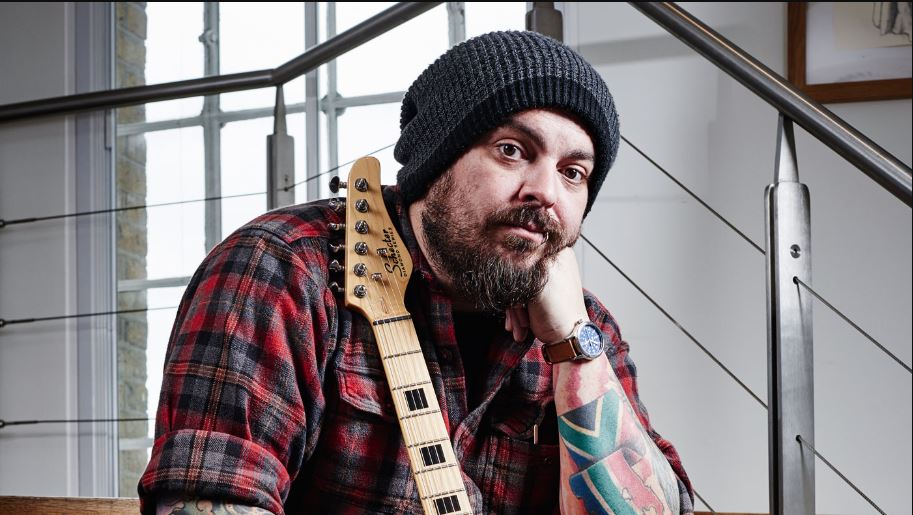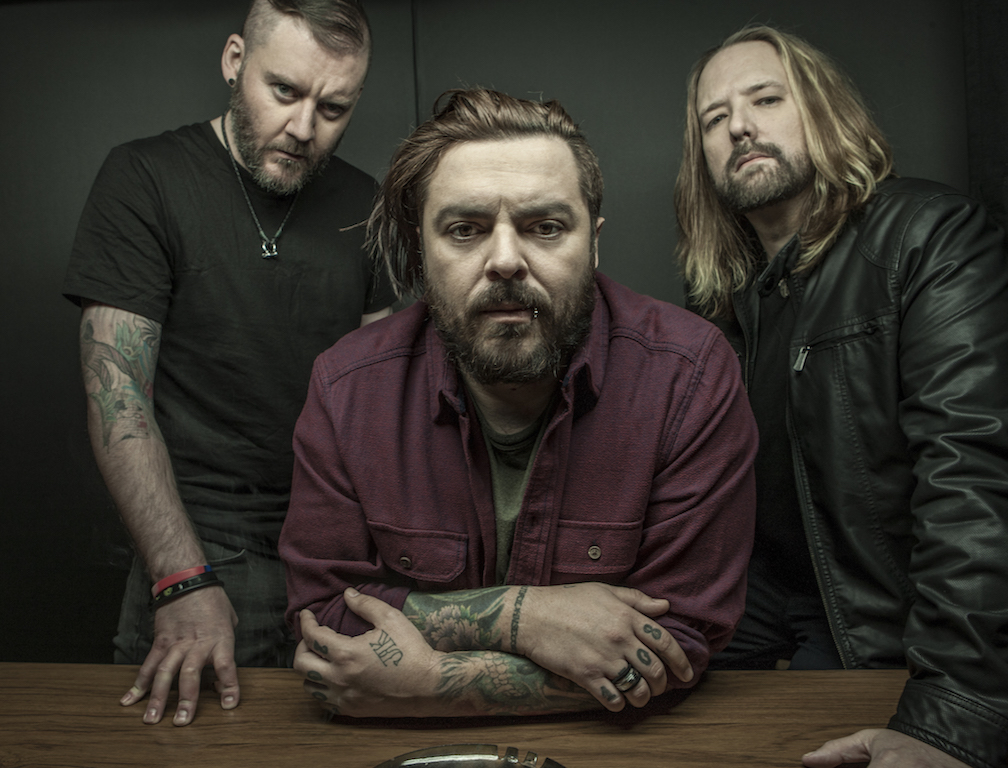

The Story Behind the Breakup Song “Call Me When You’re Sober” by Seether frontman Shaun Morgan and Evanescence
Back in the 2000s, things were going great for Evanescence singer Amy Lee and Seether frontman Shaun Morgan. Her band had broken through with their multiplatinum debut album Fallen, and his group’s second album Disclaimer II was bolstered by their duet on the single “Broken,” which went to No. 20 on Billboard’s Hot 100 singles chart and helped push his South African group into Platinum territory. But after a nearly two-year relationship, the duo split apart in 2005, with his alcoholism making it impossible for them to continue as a couple.
On Evanescence’s sophomore album The Open Door that arrived in late September 2006, Lee co-wrote the song “Call Me When You’re Sober,” which she penned the lyrics for. In the press, Lee did not hide that the song was about her breakup with Morgan and the frustration she felt at the end of their relationship. She said she used her music as therapy and had grown tired of just speaking about things in metaphor. This song had a much more direct message.

Couldn’t take the blame, sick with shame
Must be exhausting to lose your own game, selfishly hated
No wonder you’re jaded
You can’t play the victim this time
And you’re too late
So don’t cry to me, if you loved me
You would be here with me
You want me, come find me
Make up your mind
In an interview with VH1.com at the time, Lee said, “It’s very obvious who it’s about. I know that people would read between the lines and think it’s about my ex-boyfriend Shaun Morgan, but I wanted to be completely clear. I needed so bad to say exactly what I was feeling for so long. Music is therapy for me. It’s my outlet for every negative thing I’ve ever been through. It lets me turn something bad into something beautiful.”
The lead single for The Open Door, which went to No. 10 in America (and the album to No. 1), “Call Me When You’re Sober” clearly resonated with listeners.
Hard Feelings
On the other hand, Morgan was not pleased with the song coming out. The single arried at radio stations, coincidentally, the day he checked into rehab. The Evanescence song was a source of frustration for him because he felt like people knew exactly who was about and that he and his band would live under the dark cloud of those lyrics for a while.
“I was bummed out,” Morgan told MTV.com in 2007. “I was really upset that she would say and do those things. In any relationship, I don’t think it’s right to say and do those things when people break up, and she obviously felt the need to go out there and make me sound like a complete a–hole. What can I do? I just refuse to lower myself to that level. But it was a painful thing and it got me down—people coming up to me on the street and referring to that song. But I didn’t feel the need to write back and be mean.”

Freshly sober upon the release of his band’s third album Finding Beauty in Negative Spaces—which arrived a year after The Open Door—Morgan included the song “Breakdown,” which was inspired by, among other things, his breakup with Lee. So he got to offer his take on things, which also had its thorny side.
So break me down if it makes you feel right
And hate me now if it keeps you alright
You can break me down if it takes all your might
‘Cause I’m so much more that meets the eye
And I’m the one you can never trust
‘Cause wounds are ways to reveal us
And yeah, I could have tried and devoted my life to both of us
But what a waste of my time when the world we had was yours
Evanescence listeners who have been on either side of a relationship where one person isn’t sober certainly relate very well to what Lee was singing about, some lamenting when they were drunk and negatively impacting others. The video itself featured imagery inspired by “Little Red Riding Hood,” with Lee dining at the end of a long table where her fictional lover keeps staring at her. She stares him down (the wolf in human form) and finally walks across the table to him and indicates the relationship is over, having bridged the gulf between them and deciding she needs more.
Putting Your Foot Down
“For me that song is more about a breakup,” Lee told Songfacts in 2016. “The ending of a relationship and getting to the place with yourself where you’re finally willing to stand up for yourself. Put your foot down when you know you need to. It’s the harder path to step out into the unknown. It’s easy for me to apply that across the board to lots of situations in my life. When I’m singing that live, I definitely have different places where I go with it these days.”
Put into an historical context, “Call Me When You’re Sober” came along at a time just before social media became a strong force in our lives but still after the internet allowed for quick dissemination of personal information. People’s lives have come under much more fast-paced and detailed scrutiny in the 21st century, while many artists these days are more direct in the messaging of their music. (Conversely, it took decades for Carly Simon to even acknowledge one of the people who inspired “You’re So Vain.” Different times.)

To be fair, Lee never once mentions her ex-boyfriend’s name in the song and more directly deals with the issue that divided them, and many fans have empathized with the situation over the years. In 2011, Lee told Spin: “I definitely get a lot of girls who are like, ‘That’s my song. I assigned that ringtone to my ex-boyfriend.’”
Leave a Reply